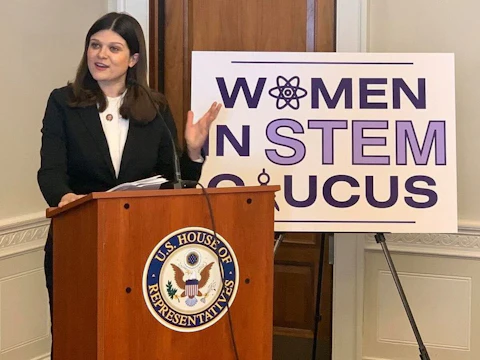While federal funds gave most other states $160,000 per patient, Michiganders got just $31,000.
MICHIGAN — Some small healthcare providers received as little as $5 in federal coronavirus aid, according to a U.S. Department of Health and Human Services database.
But even the large hospitals in Michigan who treated the lion’s share of coronavirus cases received far less funding than hospital systems in other states, according to a report requested by Michigan Democratic Sen. Gary Peters.
The national average in federal assistance per patient was $160,286. Michigan’s allotment was just $31,045 per patient. And that shortfall of $130,000 per patient was felt by Michigan’s health systems.
“The Trump Administration has delayed sending billions of dollars of relief to hospitals at a time when the nation’s health care providers needed our support more than ever,” said Peters in a statement provided to the Gander.
READ: States Still Fighting With the Trump Administration for Coronavirus Supplies
Henry Ford Health System in Metro Detroit, for example, has received more than $340 million in CARES Act payments, but it was expected to have lost $500 million through the end of June, spokesman David Olejarz told the Detroit Free Press. That has ramifications.
The Cost of Underfunding
“Hospitals in Michigan and across the country have been forced to furlough or lay off thousands of essential employees, and many more are at serious risk of shutting down entirely,” Peters said. “The Trump Administration must take immediate action to rectify these grave mistakes — our hospitals and the people they care for cannot afford to wait any longer.”
That job insecurity adds to the extreme stress hospital workers find themselves under during the pandemic.
SEE: ‘Still Scared’: Healthcare Workers Are Feeling Mental Toll as Coronavirus Fight Rages On
“Your job is constantly under fire of being cut. It’s enough to drive anyone crazy,” said Jacob Halpern, who works in patient transport at Butterworth Hospital in Grand Rapids. “Inside the hospital they are flying by the seat of their pants in the midst of mass layoffs. If it does hit that hard we’ll be severely understaffed. Patient transport is run ragged as it is.”
Halpern said this stress adds to fears of the resurgence Kent County is already beginning to see as well as the dread he personally feels seeing Michiganders out and about without face masks.
“Hospitals are incredibly expensive to operate, and a majority of patients have insurance through a government program that doesn’t cover the cost of the care they receive,” John Karasinski, spokesman for the Michigan Health & Hospital Association, told the Free Press. “When you add these and other factors together, hospitals make very small profit at the end of the year. When COVID-19 arrived and most services and procedures had to stop, there was very little money coming in the door, but the hospitals had to keep things up and running.”
The insufficient funding was a result of an oversight by the Trump Administration, Peters said. The initial emergency financial relief provided by the administration did not factor in whether a medical facility was a hotspot for the coronavirus, resulting in massive inequities in funding per patient.
Hawaii got $299,855 per patient; Montana’s allotment was $305,488 per patient. North Dakota’s hospitals got $327,570 per patient, according to the report. These states have had fewer instances of coronavirus outbreaks, but were better funded.
Worse, Peters said 41% of the $175 billion in federal coronavirus relief money Congress approved three months ago to help hospitals get through the pandemic still hasn’t reached hospitals.
What We Do Now
Peters said the report recommended not only releasing the remaining 41% of the federal coronavirus relief money, but that new funding is also necessary. The report encourages Congress to address the disparities in strain on individual health systems — something the initial round of funding didn’t account for.
SEE ALSO: Sen. Peters Has a Proposal That Would Give Healthcare Workers a $25,000 Bonus
New funding also should be allocated for rural and safety net hospitals, the report suggested. The Trump Administration initially failed to account for high risks of closure experienced by these hospitals, which were often already in tough financial situations.
Lastly, the report stressed the importance of additional funding for health systems present in the HEROES Act passed by the U.S. House of Representatives.
“We’re not going to be able to turn the economy back on … if we don’t tackle the health crisis,” Michigan’s other Democratic Sen. Debbie Stabenow said on a call with reporters.
Peters called on the Trump Administration to quickly rectify the issues with the initial round of hospital funding. He said he’s hopeful Congress will act to address the shortfalls as well.
“It’s not over,” he said. “And we’re still playing catch up.”
This story originally appeared on The Gander.





